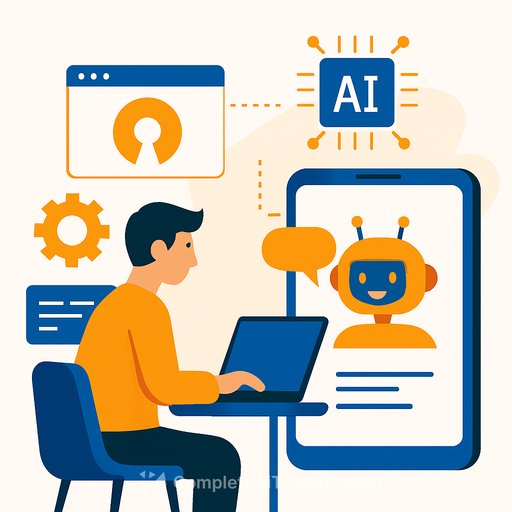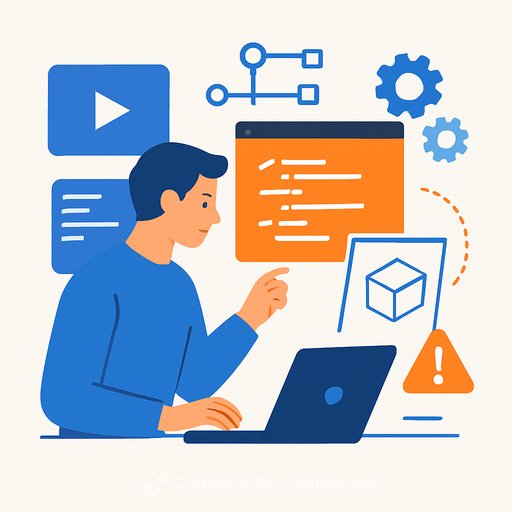NimbleEdge Tackles On-Device AI Development Challenges
NimbleEdge, an edge computing startup founded in 2021 and based in San Francisco, is advancing a new approach to on-device AI that removes the need for cloud connectivity. On July 10, the company launched DeliteAI, an open-source SDK that simplifies integrating AI and machine learning directly into mobile apps. This SDK targets front-end developers who typically use languages like Kotlin and Swift, enabling them to work with on-device AI without needing Python skills.
Alongside DeliteAI, NimbleEdge introduced an AI agent marketplace for mobile applications and the NimbleEdge Assistant, an on-device chatbot designed to provide personalized user experiences without sending data off-device.
Bridging the Gap Between Front-End and AI Development
NimbleEdge’s founders identified a key challenge for developers: AI frameworks and models are often orchestrated in Python, while mobile app development relies on languages such as Kotlin, Swift, and React. This disconnect complicates the integration of AI features into mobile apps. DeliteAI addresses this by connecting front-end hooks directly to on-device AI runtimes like ExecuTorch and ONNX, offering a unified development platform.
Developers can also link DeliteAI to NimbleEdge’s SaaS platform, which allows updating underlying Python scripts remotely without requiring app updates. This flexibility reduces friction in maintaining AI-powered app features.
Vision for Fully Agentic On-Device AI
NimbleEdge aims to enable multi-agent AI workflows that operate entirely on mobile devices, analyzing and personalizing app behavior locally. This approach preserves user privacy by keeping all data and processing on the device. To achieve this, the company leverages small language models and AI sparsity techniques optimized to run on devices with limited resources—even on smartphones as old as nine years with just 2GB of RAM.
As mobile hardware evolves, NimbleEdge expects language models to become smaller yet more capable, allowing developers to choose between on-device AI or cloud-based AI and switch seamlessly between them. The goal is to support multimodal AI capabilities—handling vision, voice, and text in multiple languages—without cloud dependency.
Industry Context and Challenges
According to analyst Gabe Knuth from Enterprise Strategy Group, on-device processors currently outpace the software designed to utilize them, which often requires custom development for specific hardware and operating systems. NimbleEdge’s platform could serve as an abstraction layer, simplifying AI workload deployment across diverse devices.
Despite backing from venture capital firms Neotribe Ventures and Sistema Asia Capital and advisory support from Srinivas Narayanan, VP of Engineering at OpenAI, NimbleEdge faces stiff competition in the mobile development space. With fewer than 50 employees, the company must find ways to gain traction amid dominant players. Industry expert Steven Dickens from HyperFrame Research notes the challenge small companies face in breaking through established ecosystems and wonders if NimbleEdge will become part of larger platforms from Google, Samsung, or others.
Why This Matters for Developers
- DeliteAI reduces the barrier for mobile developers to build on-device AI features without deep Python knowledge.
- Enables privacy-preserving AI by keeping data and processing local to the device.
- Allows apps to function fully offline, improving reliability and performance.
- Supports legacy devices, expanding AI capabilities to a broader user base.
- Offers potential for seamless switching between cloud and on-device AI depending on application needs.
For IT and development professionals focused on mobile AI, NimbleEdge’s approach offers a practical path to integrating intelligent features directly into apps while addressing privacy and connectivity concerns. To explore more about AI development tools and training, check out Complete AI Training’s latest courses.
Your membership also unlocks:






